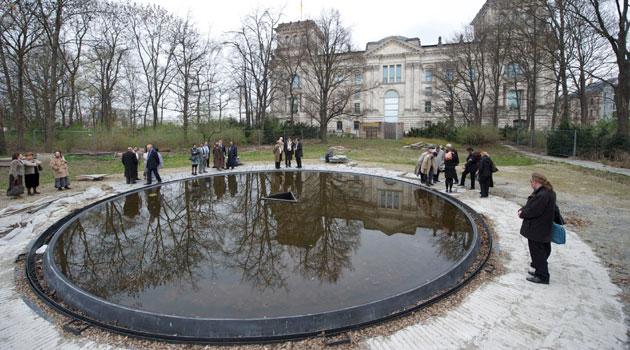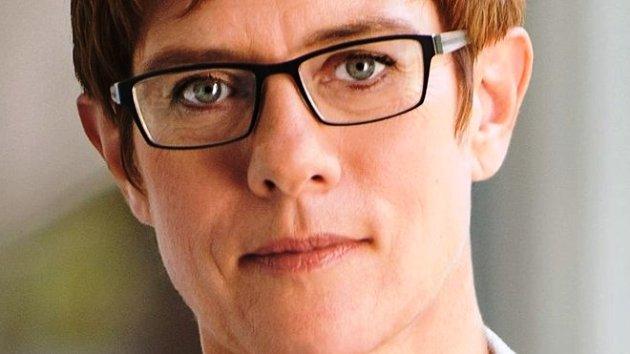German Sinti and Roma oppose Berlin tunnel construction that will disturb memorial to Sinti and Romani victims of the Nazi regime

Sinti and Romani organizations are against the construction of a tunnel for a new line of the Berlin municipal railway that will disturb a memorial to Sinti and Romani victims of the Nazi regime. Deutsche Bahn (DB), the German railway company that wants to build the line, is assuring the public that the remembrance site will not be affected, but representatives of an organization that brings together associations of Roma, Sinti, and related ethnic groups are not yet convinced that is the case.
Herbert Heuss of the Central Council of German Sinti and Roma has said the definitive form of the railway line has not yet been designated and that negotiations are still underway. By the time it ended in 1945, the Nazi regime had murdered as many as half a million Romani people and others labeled “Zigeuner“.
The fate of those people has been commemorated since 2012 by a memorial installed by the Israeli artist Dani Karavan in Berlin’s Tiergarten park near the Reichstag, the current seat of the federal parliament. The remembrance site is dominated by a reflecting pool, referred to as a “well”, the black color of which expresses infinite depth.
Around the well, stones have been set that are engraved with the names of places where Romani people died during Nazism. They include the Zigeunerlager at Hodonín u Kunštátu and Lety u Písku in what is today the Czech Republic, as well as the detention camp in Dubnica nad Váhom in what is now Slovakia.
According to the DB plan, two tunnels are meant to pass underground around the Reichstag building, and representatives of the Roma fear the construction will not just disrupt the reverential nature of the site, but Karavan’s entire artwork as a result. During the debates about how to route the tunnels, it was even proposed that the memorial be moved to a different location, which prompted strong opposition from Romani representatives.
“The relocation previously proposed was fundamentally rejected by the Central Council, it is not up for discussion,” Heuss warned. Previously it had been said that construction would force the closure of the site, which Romani representatives also disagree with.
The railways are now repeatedly assuring the public that the dignity of the site and the memorial itself will not be disturbed. Alexander Kaczmarek from the management of the Berlin division of DB said in a statement that the railway is aware of the exceptional importance of the place.
“The memorial to the Sinti and Roma murdered during Nazism will not be touched. During the construction of the new lines of the municipal railway, the memorial will remain accessible, always,” Kaczmarek said.
Heuss has expressed appreciation for the fact that the railway company has joined the debate on the issue, but noted that they only did so after the Central Council expressed their concerns. “The railway has explained that all efforts will be expended so that ‘during construction work the memorial to the murdered Sinti and Roma will be protected and the dignity of the memorial site will be preserved’,” he quoted the railway as pledging.
The Central Council spokesperson said Berlin’s state Minister for Transport, Regine Günther, has expressed the same sentiment. However, the Romani community still does not know whether the tunnels will pass underneath the Tiergarten or not.
The project is meant to provide the capital with an alternative north-south train connection and has been debated for 30 years. “The railway is counting on 13 alternate routes, for now, and presented them at two meetings so far. All the alternatives proposed in the immediate vicinity of the building of the Reichstag were rejected by the Construction Committee of the Federal Assembly of Germany,” Heuss explained.
The Central Council spokesperson said the other alternatives proposed would significantly increase project costs and would lead to the closure of three central lines of the municipal railway in Berlin for between three and four years. “That is difficult to conceive of,” he said.
Although the debates have not yet ended, it seems the building of the tunnels will apparently end up affecting the memorial somehow. The chair of the Central Council, Romani Rose, has long said he believes the best option would be if the new line avoided the entire area of the memorial, but he also admits that it may be inevitable the construction encroaches on the site.
If such a option is chosen, Rose is demanding that the location be carefully secured. Things could become clearer in September, when another round of negotations is scheduled to take place.
If, during the tunneling, the area beneath the memorial actually has to be encroached upon, Romani representatives are proposing taking advantage of that building work to construct an information center there. The Central Council has long endeavored to see such a center installed, as until now visitors to the memorial learn about the murder of ethnic Romani people by the Nazis just from the information signs at the memorial itself.
“That would be a meaningful step to take,” Heuss said of building a possible center to house an exhibition. “It could be installed underground and become fully integrated into the rest of the Tiergarten park. The Central Council and the foundation that runs the memorial have expressed the need for more information to be provided at the site for quite some time.”
